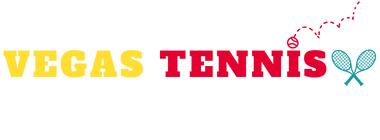MONTREAL — Carson Branstine vividly recalls the days spent gathering cans and bottles with her mother and sisters, their efforts aimed at covering gas and groceries after her family faced a devastating setback nearly ten years ago.
At the start of this year, Branstine juggled modeling, teaching tennis, and delivering food for Uber Eats to support her budding tennis career—an endeavor complicated not only by financial struggles but also by a series of persistent injuries.
Despite the challenges, Branstine insists that her tough journey is starting to pay dividends.
“I’ve never had shortcuts to reach this point, and I believe that’s forged my resilience, enabling me to compete with girls who have every advantage,” she shared. “While they have access to elite coaches, it’s just me on the court.”
Branstine’s fierce determination has propelled her to take on challenges with gusto, driving her towards center court.
“Nothing really shakes me,” she declared during a phone interview. “I’m ready to do whatever it takes to win, fighting until the very last point.”
Representing Canada while originally hailing from Orange County, California, Branstine has familial ties to Toronto through her mother, Carol.
Now 24 and a dual citizen—coincidentally a cousin to Dodgers star Freddie Freeman—Branstine enters the National Bank Open presented by Rogers as a wild card this weekend in Montreal, fresh off a successful Wimbledon qualifying round.
The powerful-serving Branstine made waves by defeating French Open semifinalist Lois Boisson and her longtime friend Bianca Andreescu on her way to her inaugural Grand Slam main draw.
Her Wimbledon campaign concluded in the opening round against world No. 1 Aryna Sabalenka on Court No. 1 at the prestigious All England Club, capping off an exhilarating few days.
“It took me a week to calm down and sleep without dwelling on everything that had just happened,” she reflected. “Now that the dust has settled, I realize I’m still ranked (191) and there’s so much further to go.”
“I’ve always believed I should be in the top 100; it was just a matter of overcoming injuries or other hurdles. Now that I’m winning tough matches back-to-back, it’s validating my belief that I belong here.”
Branstine has always had confidence, having experienced success at the highest levels.
The five-foot-11 right-handed player reached No. 4 on the ITF junior tour in 2017, a year that also saw her snatch two Grand Slam junior doubles titles alongside Andreescu.
Choosing the collegiate path instead of heading straight to the professional circuit—a decision greatly influenced by her injuries and the hefty costs of traveling around the globe—has served Branstine well.
Her family’s financial situation was “mostly middle-class,” and although she enjoyed a few years at a private school, everything shifted when she turned 13.
Branstine describes how her father Bruce, a financial adviser, struggled to find success, leading the family to lose everything.
“We transitioned from a secure middle-class life to relying on meals from my grandmother, and my parents barely scraping by,” she recalled. “People often see me as ‘just from Orange County,’ but it isn’t as glamorous as it seems when living paycheck to paycheck.”
In 2016, Branstine relocated to Montreal to train at Tennis Canada’s national center, donning Canada’s colors for competition the following year.
Choosing Canada over the U.S. was a vision she held even during her youth.
“Being a first-generation American on my mom’s side, it feels like an honor to represent Canada. I genuinely identify as Canadian,” she expressed, acknowledging Tennis Canada’s backing from “Day 1.”
“Playing for Canada is my greatest joy.”
Valérie Tétreault, a former player and now the tournament director for the National Bank Open, fondly remembers Branstine’s arrival on the Canadian scene, noting her powerful groundstrokes and anticipated ascent in the rankings.
“Her journey highlights the importance of self-belief,” Tétreault remarked. “Even in her match against Aryna at Wimbledon, she never appeared to be outclassed.”
“She can see a clear path to the top 50 and making a sustainable living in the sport.”
To advance towards that goal, Branstine is investing in her future, partnering with Belgian coach Gerald Moretti for the Montreal event.
“I can only afford this for a limited time right now,” she explained. “(But) if I want to break into the top 100, and ultimately the top 50 and beyond, there’s no room for shortcuts.”
This recent success is not only expanding her fanbase but also leading to new opportunities for brand partnerships. She plans to continue balancing her tennis career alongside modeling.
As for Uber Eats?
“Absolutely not,” she laughed. “That chapter has closed.”




